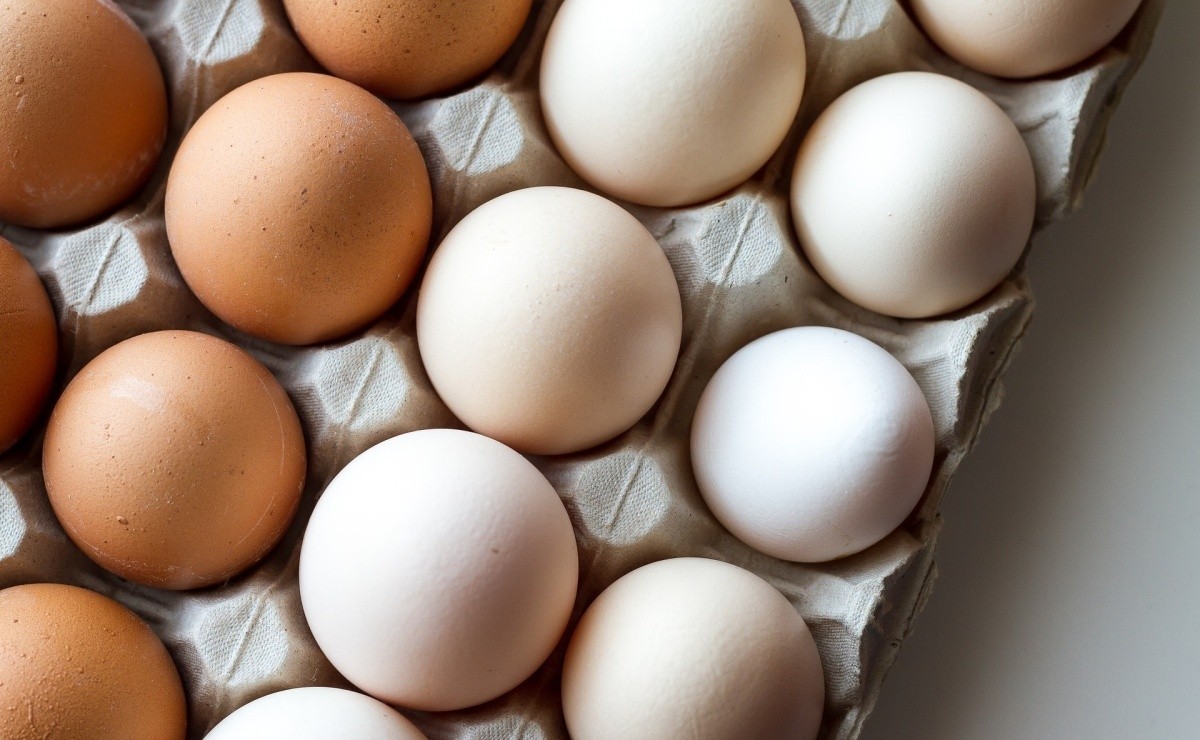
How important is it to restrict the consumption of eggs? Is it true that they contribute to the increase in cholesterol? These are some of the questions answered by the At ease with the Earth podcast
There are many doubts and contradictions about eggs and whether they are healthy in the diet. For this reason, Noelia López, a Nestlé nutritionist, debunks all the myths about this food.
Eggs are interesting because they are protein foods thanks to albumin, which we find in greater quantity in this product. If we are following a vegetarian diet, they can be consumed in different preparations. This food provides proteins of high biological value and are easily digestible.
"This means that our digestive system is capable of taking advantage of all these nutrients that are concentrated mainly in the egg white," says nutritionist Noelia López.

The expert reminds that they should always be cooked because when they are raw "the body’s ability to take advantage of them is limited." In the case of the hard-boiled egg, it is reduced by half.
Healthy fats and protein, most prominent nutrients
In the yolk, there is fat, but much less than is popularly believed. 50% of the yolk is egg and the rest is divided equally between proteins and lipids. Most of these fats are saturated.
The yolks provide mono and polyunsaturated fats, so they have a healthy profile. This is the case of oleic acid, linoleic acid and Omega 3. It also provides choline, a molecule present in many metabolic processes, necessary for the proper functioning of the body.
In addition, it has a high content of fat-soluble vitamins such as A or D, minerals such as phosphorus, iron and zinc, antioxidants such as carotenoids and other nutrients.
Are there differences between the types of eggs?
Not all eggs are the same, just as their environmental impact differs. These may have a different origin and vary their production. The feeding of the birds is decisive in the nutritional quality of the egg.
The type of hatchling is important because it ends up determining the category and quality of the egg. A conscious purchase with knowledge contributes to making it easier to eat a sustainable and responsible diet.
The expert recalls that "you have to know how to pay attention to be able to buy quality and sustainable eggs." The shell of the eggs is printed with a code of letters and numbers that gathers information of interest.
The first number informs us of the breeding method and goes from 0 to 1:
Or: organic hens, which go outdoors and consume organic feed, so there is animal welfare.
1: hens raised in freedom, but that eat feed freely
2 – Floor-raised hens that can move around in a covered coop
3: birds raised in cages
How should they be preserved?
It is important not to wash the eggs with water and remove any residue with a paper towel, but without using liquids that alter the natural protection of the egg.
Eggs should not be frozen because the shell can crack and change their appearance. It is also not recommended to leave them at room temperature or near areas where we cook and the temperature varies a lot.
The nutritionist recommends using the fridge and trying to keep them at a constant temperature. Therefore, keeping them on the shelves of the refrigerator door is not recommended.
“The best place is the central shelf to avoid shell condensation that favors the growth of bacteria such as salmonella. This could penetrate inside the egg through the pores of the shell”, points out López.
Likewise, it is important to respect the expiration date and not use home methods to determine if it can be consumed.
Submerging an egg in water to see if it floats helps to verify the freshness of the egg, but this does not mean that you can ignore the expiration date.
As the egg gets older, more air enters the pores of the shell and buoyancy increases. Therefore, an egg freshly collected from the farmyard sinks quickly.
Do eggs affect cholesterol?
In the 1970s, it was recommended to limit the population’s consumption of eggs to three per week due to cholesterol.
The expert explains that this recommendation "is outdated and today it is known that eating an egg a day does not increase the risk of suffering cardiovascular disease or increasing cholesterol in healthy people."
The Spanish Heart Foundation recommends an intake of three to five eggs per week and only if you have high cholesterol levels, they should be reduced to two or three whole eggs and 4 or 5 egg whites per week.
In the case of imperfections in the eggs, such as wrinkles or blood marks, they do not present a health risk, so they can be consumed without any problem.
The wrinkled shells are a defect due to the accumulation of calcium and nutritionally it has no implication. In the case of blood marks, they are imperfections due to tears and hemorrhages.